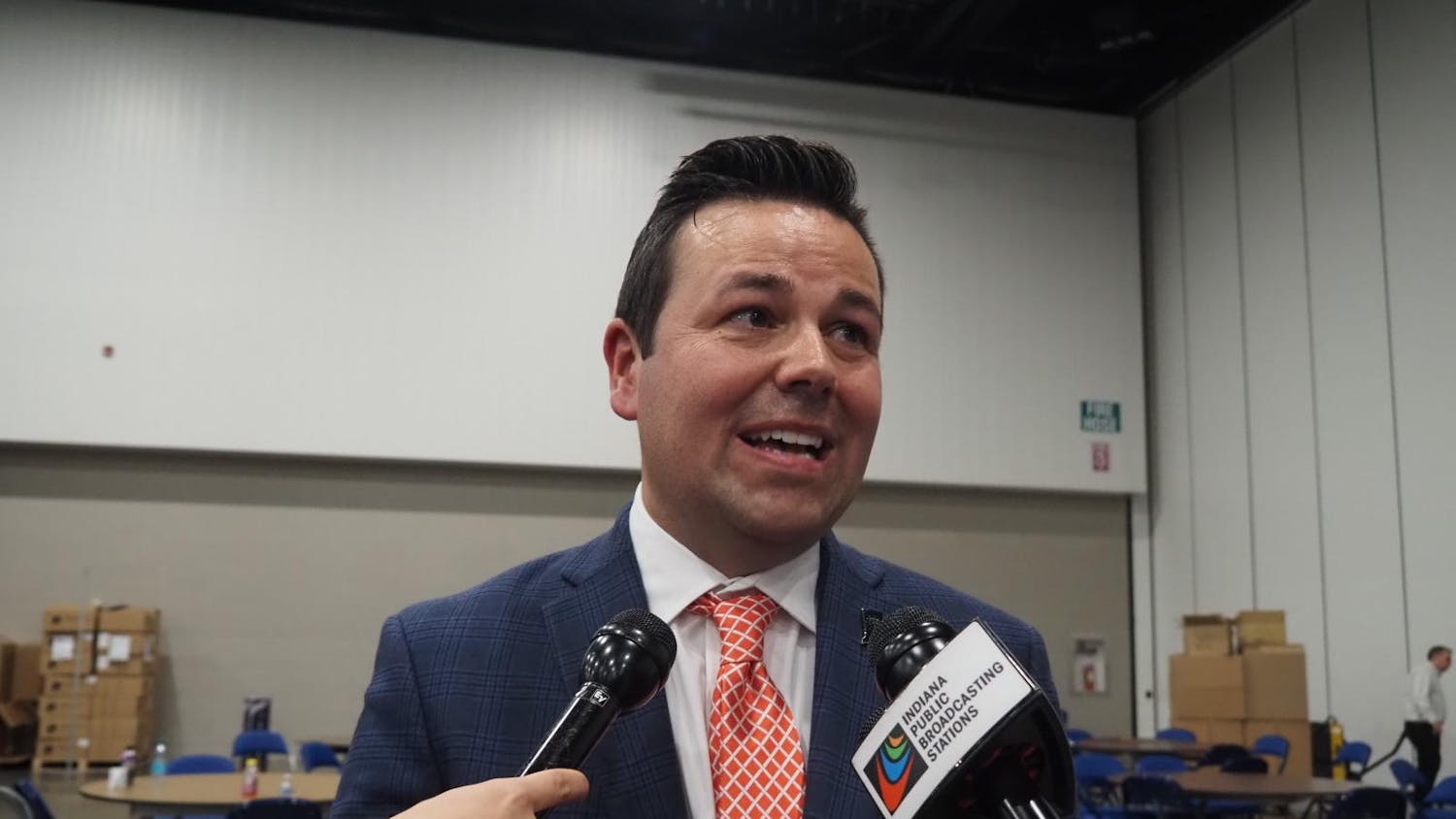Sharing a container of ice cream at Wright Place food court, freshman Aakshi Siddana and her friends tell jokes and discuss their evening plans in a combination of Hindi and English.\nSitting among her newfound friends, thousands of miles away from her home in India, Siddana has found her IU family.\nSiddana, a business major, is one of more than 3,680 international students who traveled across the world to study at IU. \n"It was tough at first," she said. "But meeting so many Indian people helped. All my friends talk the same way, have the same language." \nSiddana's residence hall room is a mix of Indian and American culture. A small idol of a Hindu god rests on her desk. A Barbara Taylor Bradford novel sits on her bookshelf. A container of Chakli, an Indian snack, flanks the novel.\nShe came to IU with her roommate, joining three other people from her high school who were already in Bloomington. Siddana said her high school friends helped make her adjustment to IU easier than it is for most international students. \nKenneth Rogers, dean of International Services, said most international students struggle on some level with adjusting to the language and interacting with Americans. That is in addition to other problems freshmen face, such as feeling homesick and adjusting to life on their own, Rogers said.\nHe said international students face problems getting used to the U.S. educational system, which differs from that of most other countries.\nIn India, Siddana said, students do not have the luxury of multiple-choice questions. Their only choice is essay exams. \nSiddana said she had little trouble adjusting to speaking or writing in English -- she has been learning it since kindergarten. But common American expressions often elude her -- she says "fagging" instead of "smoking" and "disc" instead of "club."\nBut she said she still has trouble getting used to the American way of pronunciation. Every time she spells her name to Americans, they misinterpret her "a's" for "e's." \nTo compensate, Siddana said a friend of hers tries to put on an accent when talking to Americans. \n"We're like … you don't have to talk to us like that," she said. "We don't understand it."\nSiddana said it irks her when some international students try too hard to blend into the American culture.\n"You should interact … tell each other about your cultures," Siddana said. "But you shouldn't forget what your culture is."\nA friend of Siddana's, freshman Umair Shamsi from Pakistan, said he feels differently about American culture.\n"You should adapt to the system." he said, while stressing the importance of retaining his own identity.\nSiddana said her interaction extends beyond her friends, who are mostly Indian and Pakistani, to Americans in class groups. \nFreshman Tanya Shariff, another of Siddana's friends, said some Americans feel intimidated because "they don't know what to say to us." \nSiddana said she felt the reason is different.\n"There are some people who are not interested in learning about your culture," she said. "They won't even bother … if you go up to them, they'll be like 'Why do you want to know about me? I don't want to know about you." \nRogers lamented that international and American students do not interact as much as he would like.\n"It's attributed to the natural human tendency to refuse to meet and talk with someone who looks different," he said. "It has to do with comfort zones." \nAmerican culture still shocks Siddana from time to time.\n"We went to the disc (Ground Zero) once, and we never wanted to go again," she said. \nThe skimpy clothes and style of dancing astounded her.\n"We've never seen anything like that," she said.\nIndia is a very closed culture, she explained. People are covered up and expose little of their skin. \nIt's like (for Americans), it's my life. I can do what I want." she said, adding that in India, the family worries about what society will think. \nAnother of Siddana's friends, sophomore Ali Tariq, who is from Pakistan, said she agreed. \n"We don't think the same way," he said. "I can walk outside here and say anything I want. I could say 'I'm gay. I'm lesbian.' But not in Pakistan." \nSiddana said she gets shocked in class sometimes.\nHer theater class was practicing an exercise in which two people sit in front and ask each other random questions. The goal was to ask the questions using the same tone.\nLowering her voice almost to a whisper, Siddana repeated the question one guy asked a girl: "What's your bra size?" \n"I was like, oh my god, how can he be so cool about it? If this would happen in India, it would be wrong... everyone would know about it, your friends, your parents," she said.\nShe explained that she appreciated her close Indian friends for helping her remember what is right and what is wrong. \n"If anyone of us is doing something wrong … we sit there and talk to them," Siddana said. "We're a family here"
Indian student finds 'family'
Business major is 1 of more than 3,680 international students
Get stories like this in your inbox
Subscribe





